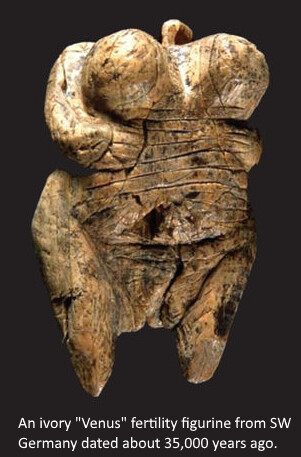Couldn’t agree more, on both points. The smallest life fascinates me. There is no such thing as a “mere animal” on any level, even our own. Chimps have first-level Theory of Mind just like human toddlers. (I know you have a mind like mine, and I can tell what you’re thinking.) The roots of human morality can be traced far back into the animal kingdom. Yet, there’s still a giant leap between human morality and the moral “innocence” of animals.
I don’t particularly care for “the fall” as a metaphor for what happened, but it’s the traditional term that folks understand. It includes the idea that humanity began with two individuals in a state of highest perfection, from which they “fell” into sinfulness. That’s nonsense. Skipping to the end of the story, all the curses pronounced upon the serpent, the woman and the man could be lumped under the mythological category of explaining present realities. Why do snakes crawl, and why do we hate them? Why do women have inordinate pain in childbirth (compared to animals)? Why is it so hard to scratch out a living from the ground? Most important are the spiritual ramifications. Why are we denied immortality and subject to death, and why are we separated from God? Those are the truly big questions.
Perhaps our fellow creatures have some sense of God’s presence. I don’t know what it’s like to be a bat. haha. (A famous essay on consciousness.) I do know that language is necessary to reason abstractly about concepts like “god,” not to mention love, good, evil, mercy, etc. The question is when humans began to entertain such concepts, because the language to describe such thoughts had to come after people began to feel them, not before.
I also think it’s possible to roughly trace the birth of spiritual awareness/“god-consciousness” in the archeological record. Homo naledi laid their dead in caves. Perhaps that’s a rough sense of the spiritual, but the best indicator of ceremonial burial is the Earliest Known Human Burial in Africa around 78,000 years ago. By 24,000 years ago, funerary practices had become far more elaborate. A double-burial in Sunghir, Russia, “of a boy and a girl, about 12–13 and 9–10 years old, respectively, were buried at the same time, head to head, covered by red ocher and ornamented with extraordinarily rich grave goods.” I think this is significant because the “grave goods” are items that the deceased would use in the afterlife. This is a pretty obvious indicator spiritual/religious thought and hope of godlike immortality, which is one of the themes of Gen 2-3 and many other myths.
On top of that, items such as “Venus” fertility figurines and “fantastical creatures” like the man with the head of a lion start to proliferate around 35,000 years ago.


All of this fits with the phenomenon of globularity, which some early researchers called “the language-ready brain.” The Evolution of the Modern Human Brain Shape “evolved gradually within the H. sapiens lineage, reaching present-day human variation between about 100,000 and 35,000 years ago. This process started only after other key features of craniofacial morphology appeared modern and paralleled the emergence of behavioral modernity as seen from the archeological record.”
Getting late here and I’ve gone on too long already. I’ll come back and finish off tomorrow. Good thoughts. Thanks.